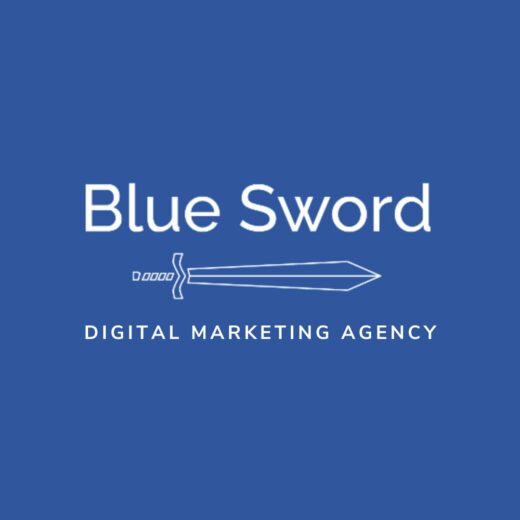That’s It – You Officially Can’t Ignore Social Media

Facebook is old enough to go to high school, Twitter is bigger than Brazil and Mexico combined, and – most importantly for you – 93% of consumers expect businesses to have a presence on social media. For a business today, not having a social media presence is the same as not having a phone.
For the majority of business owners, this isn’t news. Social media has been ubiquitous for years; there are hashtags on print advertising, twitter feeds on the local news, and social icons on practically every piece of marketing you see. But even these business owners might not realise just how important it is and who they can reach on Twitter and Facebook. For example, did you know that over 50s are the largest growing demographic on social media – it’s not just a young person’s game any more.
Why do we need to use social media?
- Social proof – consumers in every sector look at social signals such as reviews, followers, and others indicators of authority and reputation when making purchasing decisions. While decision makers may look at information on Company’s House, the person presenting the information to the decision maker may drop a company from consideration if there is no social proof of a company’s reputation or success.
- It’s a basic expectation – several years ago, social media was a still an option. Now, it’s expected in the same way that a website and telephone number are. Put simply, if you don’t have a social media account, everybody will be asking ‘why not?’.
- Your competition are using it – your competition are letting people know about the latest news, having conversations with customers, and increasing their brand’s reach and influence. The more they do that, the more you will fall behind.But eve
- Social media helps SEO – shares are similar to link building. They introduce your brand to a new audience and build more and more referring links to your site. Recently, Twitter has partnered with Google to let the search engine crawl their statuses. This means that Twitter updates will rank on Google.
- It’s Word of Mouth marketing – but instead of recommending a company to the 2-3 people in the conversation, influencers recommend a company to hundreds or thousands of followers.
- People expect transparency – 68% of consumers say that transparency is more important than brand appeal when they make purchasing decisions. Part of this is the increasing expectation for companies to be visible and accessible on social media.
- Customers are now more likely to listen to peers than companies – they get information from social media sites. If you do not provide positive content to share and engage with, you will have less of a presence on a site for decision making.
And some stats:
- 50% of small business owners report gaining new customers through social media
- 100% of decision makers use social media for work purposes
- 68% of consumers check out companies on social networking sites before buying
- 70% of marketers say that social media marketing has increased their brand awareness
- 52% of enterprise brands say social media is the top driver for relationship building and brand engagement
- Users over 50 are the largest growing demographic on social media
- 55% of people aged 45-54 have a profile on social media – it isn’t just a young person’s tool
- 95% of millennials expect brands to have a Facebook presence, 87% of Gen-Xers (30-44 year olds), and 70% of people aged 45-60 expect a social presence from a brand
- 93% of consumers want companies to have a presence on social media
- 92% of companies use social media for recruitment
- 73% of companies hired successfully through social media
What if we don’t?
- You severely limit your brand recognition
- You have fewer social signals showing that you have a reputable brand
- You miss out on increased brand loyalty gained by frequently interacting with customers
- You limit conversion opportunities
- You don’t benefit from higher conversion rates and cheaper leads through inbound marketing
- You miss out on a huge amount of social traffic
- You miss out on the opportunity to have Tweets in the search results
- You can’t gain more in-depth customer insights through social listening and profiling
- Your competitors look better than you online
- Your company either looks very old-fashioned or looks as though you’re hiding something
But what if something goes wrong?
Firstly, given the huge numbers of companies on social media the famous ‘social media blunders’ make up less than 1% of the companies that actually use the platforms and engage.
Ultimately, there are a few main reasons why things go wrong:
- Insensitivity: a shop owner once used the hashtag #cairoriots (which resulted in a lot of fatalities and injuries) to promote his sale. More recently, the hashtag #whyistayed was spreading across Twitter for people to discuss why they stayed in abusive relationships; a pizza restaurant used it to say ‘#whyistayed You had pizza’.
- Bad customer service: in 2014 a TFL worker on Twitter suggested that a customer should leave early to avoid being late to work.
- General poor responses to brands: certain brands such as McDonalds or insurers almost always get a backlash due to their business practices. This happens across all media and regardless of social media.
- Racism, sexism, homophobia will always get a negative response on social media.
Put simply, don’t be insensitive, don’t newsjack inappropriate stories/hashtags, and be polite. If you follow these guidelines you’ll be absolutely fine.
If you do post something that receives a negative response, simply apologise (on the same platform) and be honest. Companies that apologise tend to be forgiven, but companies who simply delete posts and try to pretend it never happened tend to attract more negative responses.
If you are dealing with a particularly difficult person, take the conversation off social media and encourage them to respond via email.
Finally, get in touch if something goes wrong and we can respond and guide you through the event to help you make the most of it.
There is always an opportunity to turn a negative into a positive. A few years ago, a worker at Red Cross forgot to log into his own Twitter account and said ‘Ryan found two more 4 bottle packs of Dogfish Head’s Midas Touch beer… when we drink we do it right #gettngslizzerd’. Sound like a disaster? It wasn’t.
The Red Cross just said ‘We’ve deleted the rogue tweet but rest assured the Red Cross is sober and we’ve confiscated the keys’, and the Dogfish Beer company even went on to encourage people to give blood too. The craft beer community shared the tweet and even donated money to the Red Cross as a result, and bars around the UK were offering to buy Dogfish prints for people who could show they’d donated blood.
Wendy Harman from the Red Cross said, “Listen, we deal with huge, natural disasters all the time… this really isn’t that huge.”








